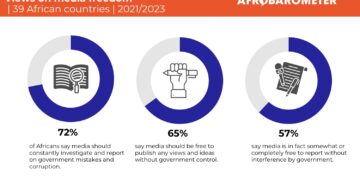Domestic debt restructuring to severely impact banks – Pierre Laporte
World Bank Country Director for Ghana, Liberia and Sierra Leone, Pierre Laporte, has said a domestic debt restructuring by government will have serious repercussions for the banking industry.
This is because, most banks in the country, he noted, have high exposure to government debts.
Speaking in a yet-to-be-aired interview on TV3 on the back of calls by economic analysts for government to undertake debt restructuring given the country’s unsustainable debt levels, Mr Laporte stated a domestic debt restructuring by government will affect the capital adequacy ratio (CAR) of banks.
Capital adequacy ratio measures banks’ ability to absorb potential losses arising out of bad loans. It is also used to determine the solvency of a bank.
A domestic debt restructuring will mean cutting down government’s debts to banks which means losses to banks, as government debts form a major component of banks’ assets.
“Any attempt by government to apply a haircut to domestic debt will seriously hamper the banking industry particularly the capital adequacy ratio of banks as banks are highly exposed to government debts (sic),” he stated.
Debt restructuring now unavoidable
Ghana’s external debt restructuring may now be hard to avoid, says Singapore based financial research firm, REDD Intelligence.
Mark Bohlund, Senior Analyst at REDD Intelligence, first pointed to a likely need for Ghana’s sovereign debt restructuring back in October 2021, but general market chatter about its inevitability intensified after the country formally approached the International Monetary Fund (IMF) for help.
The research firm recently discussed Ghana’s increasingly troubling debt situation and challenges of including domestic debt in any potential restructuring, and looked at collective action clauses in Ghana’s sovereign Eurobonds.
“After many months of hoping the country would be able to increase its revenue streams and tighten its fiscal policy to avert a looming balance of payments crisis, most international investors are now reluctantly assessing a potential timing and format of an expected debt exercise.
“The key next step will be a debt sustainability assessment from the IMF, which is expected by the end of 2022 or in early 2023, and will help determine if the country has a liquidity or a debt sustainability issue,” said REDD Intelligence.
“The market consensus is that the African nation [Ghana] is unlikely to regain market access any time soon, with or without an IMF programme. With just over $7 billion of total international reserves and no major external debt repayments until 2025, Ghana likely has up to 12 months before it runs out of liquidity,” it added.
According to REDD Intelligence, an economic programme from the IMF could happen in the first quarter of 2023, as the country has to pay $1 billion Eurobond coupons annually over the next few years.
Liquidity or solvency problem?
REDD Intelligence has said the country must adopt two main scenarios.
In the first scenario, the country has a liquidity problem and therefore the IMF programme discussions will then focus on delivering primary surplus, restoring macro-stability, and regaining market access by 2025, when $1.5 billion in Eurobond maturities are due.
In the second scenario of Ghana having a solvency problem, there is an expected protracted restructuring — either through the G20 Common Framework, similar to Chad, Ethiopia and Zambia, or a classical default, similar to Sri Lanka.
In its July 2021 Article IV on Ghana, the IMF stated that public debt is sustainable so long as the authorities’ medium-term consolidation plan is rigorously and credibly implemented to improve the primary balance, put debt on a declining trajectory, and ensure market access.









